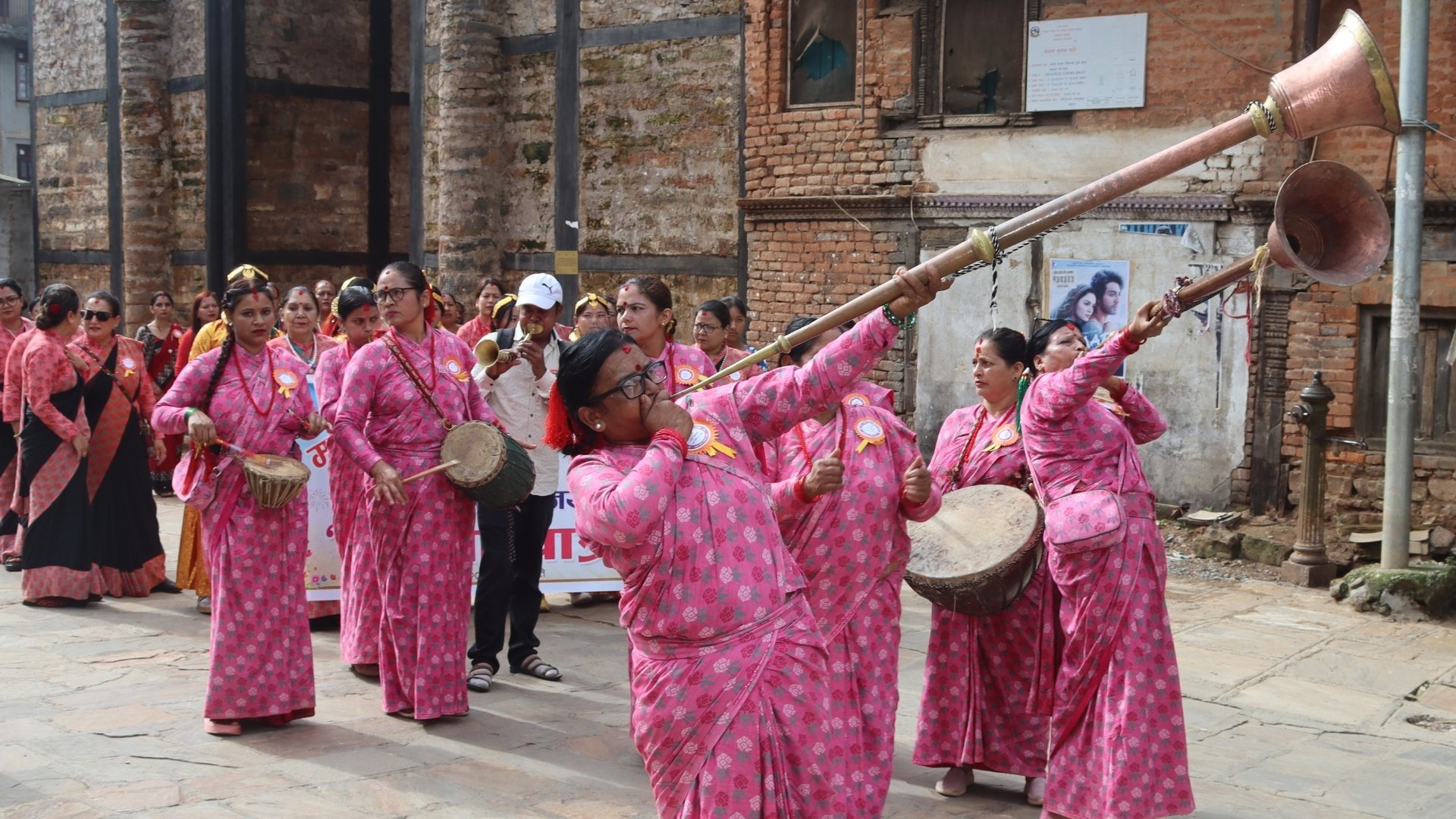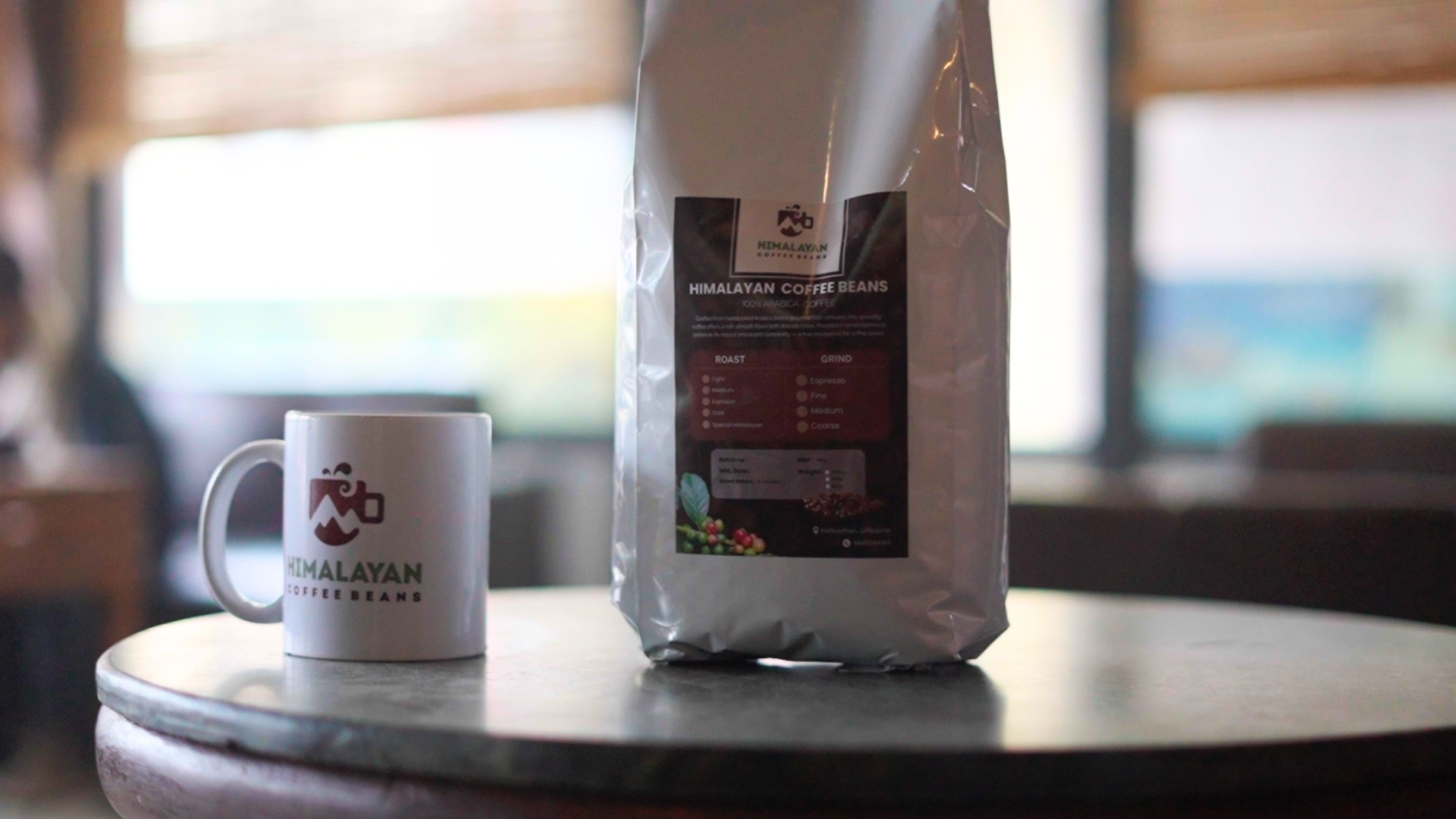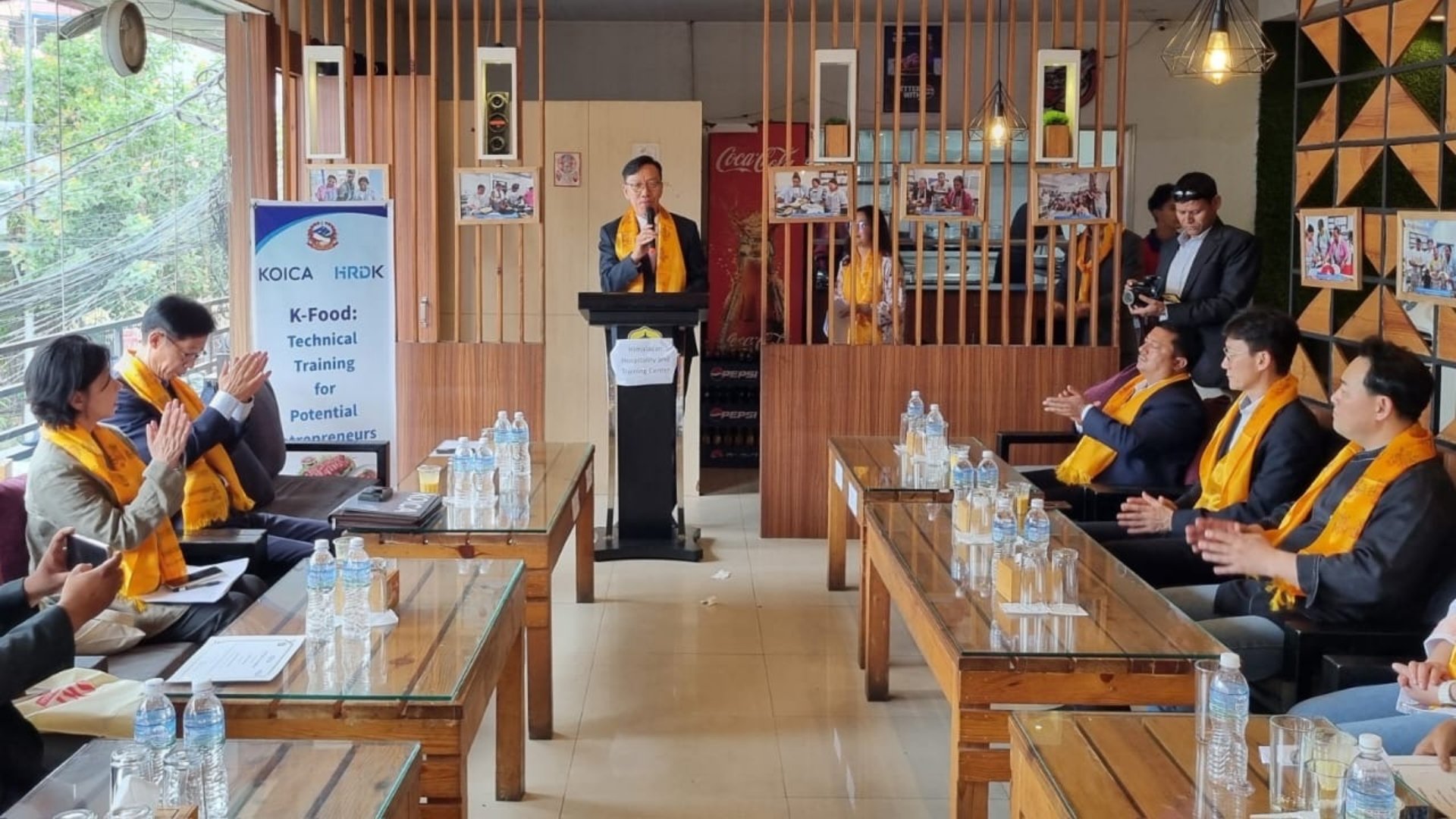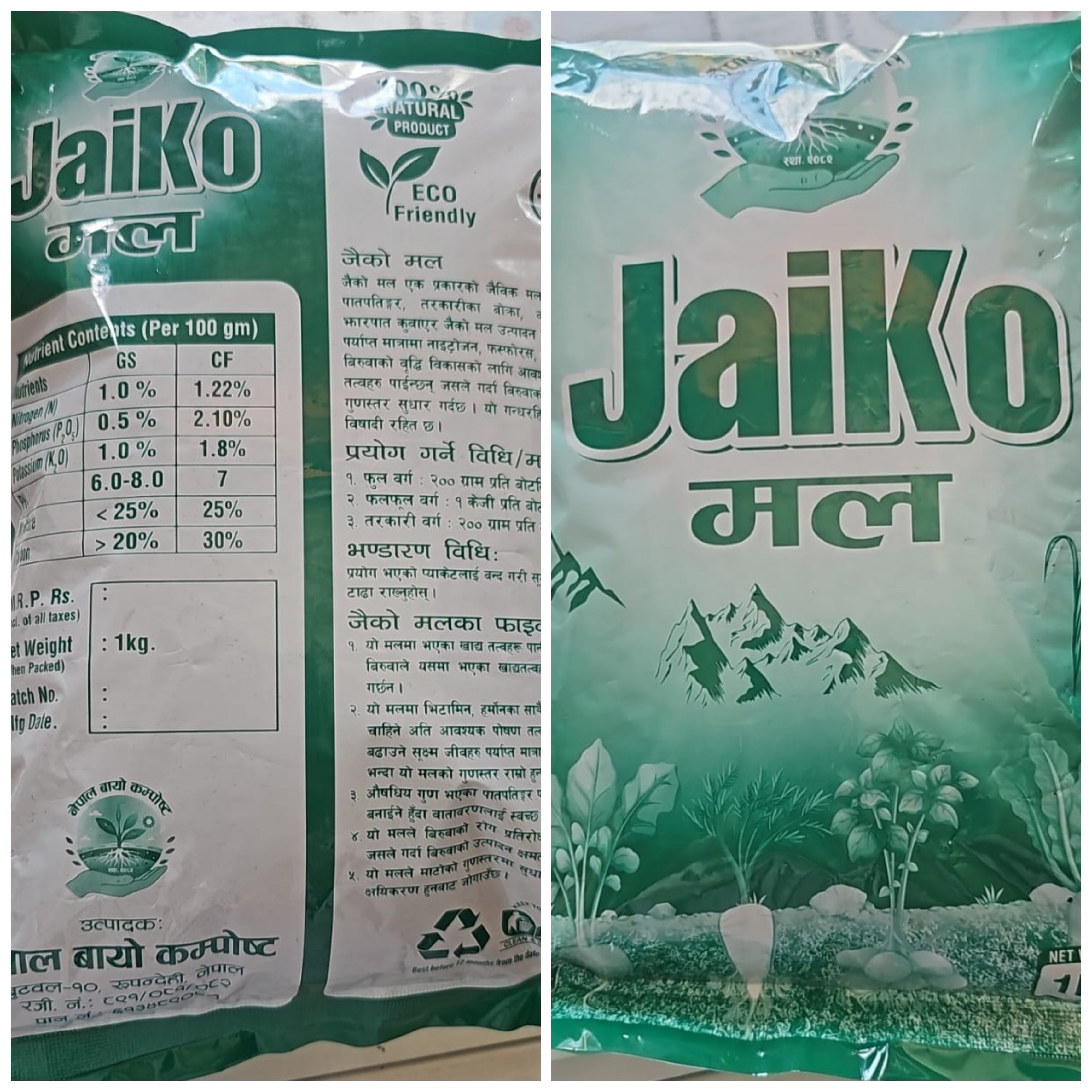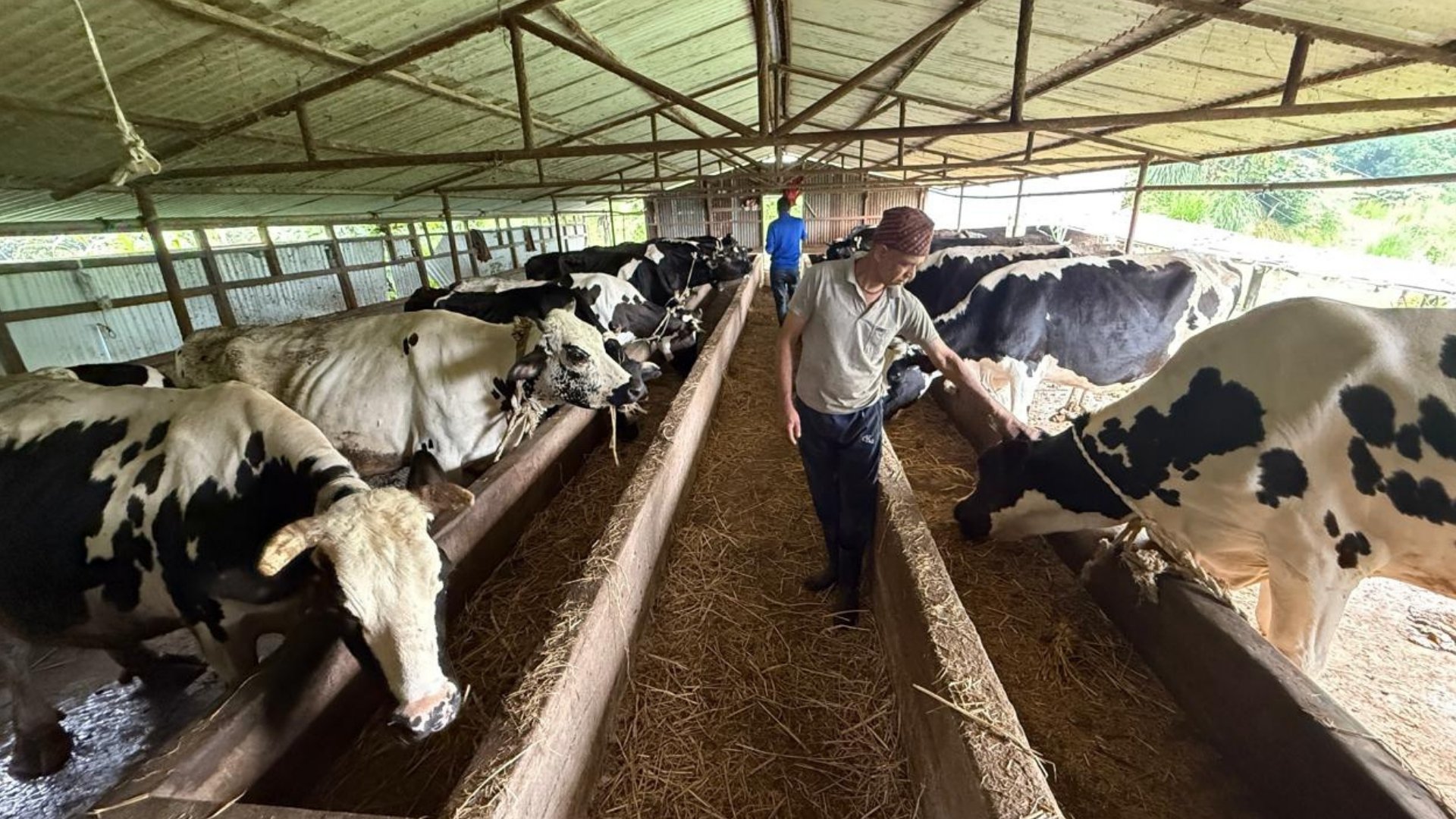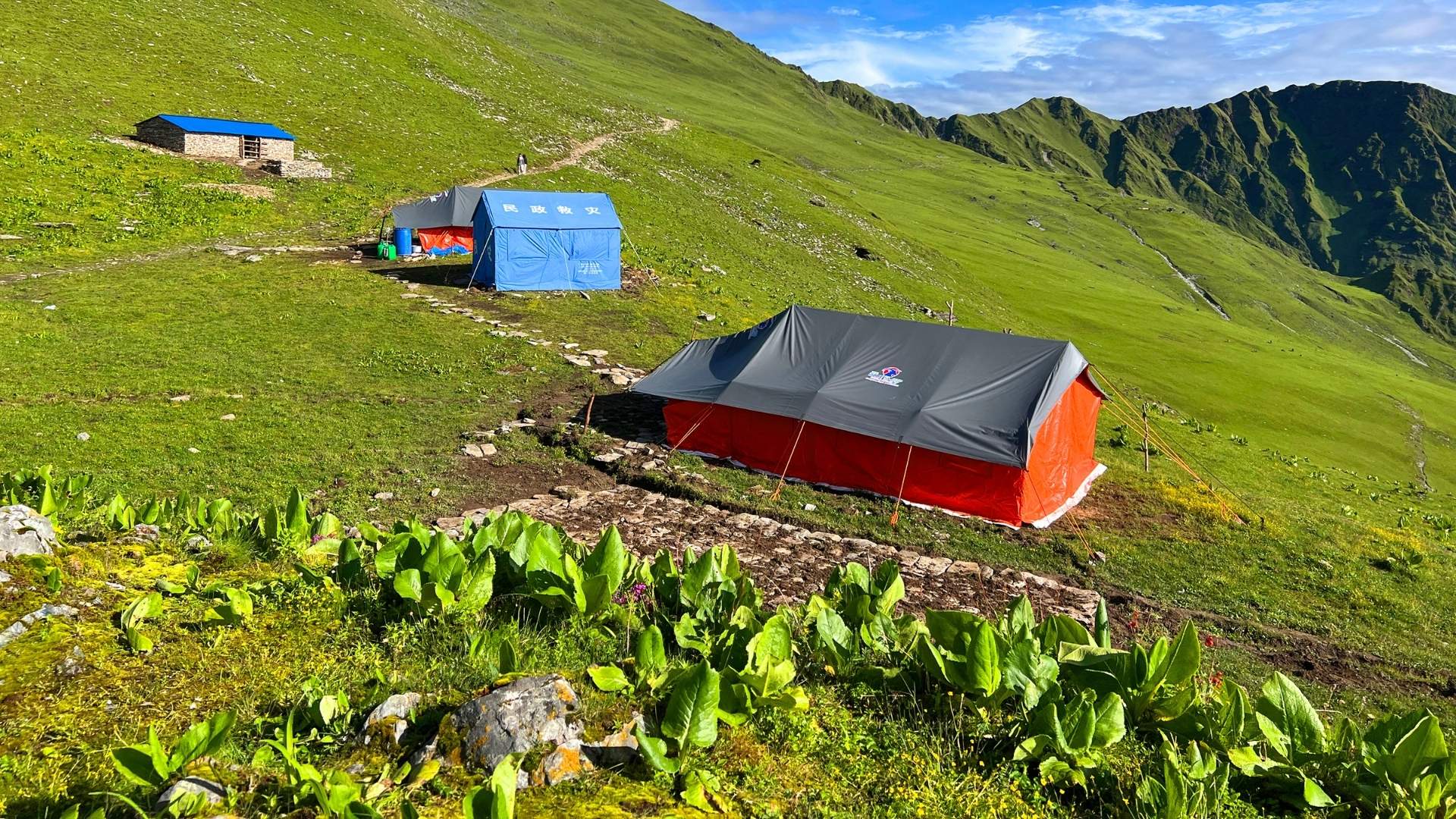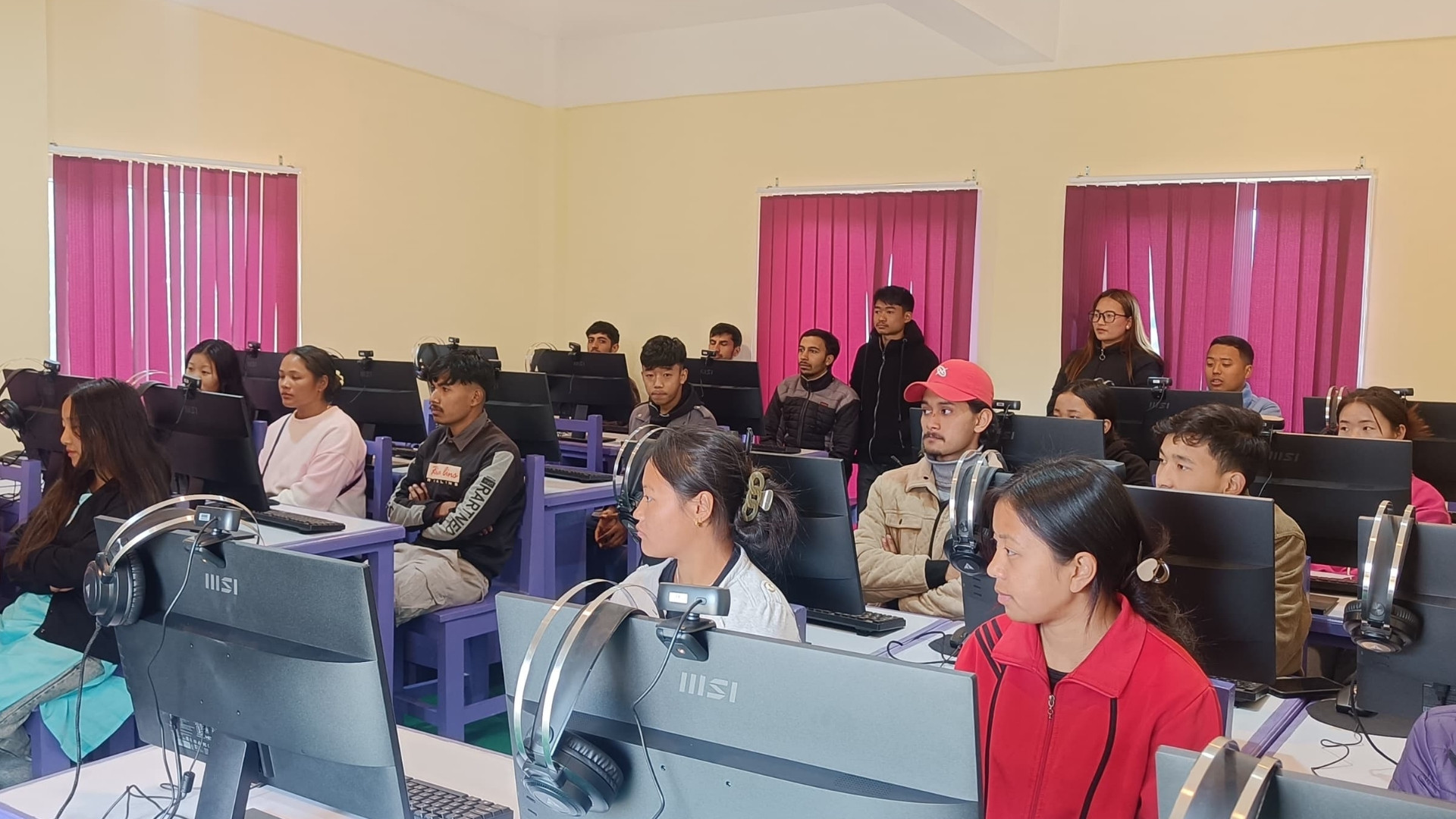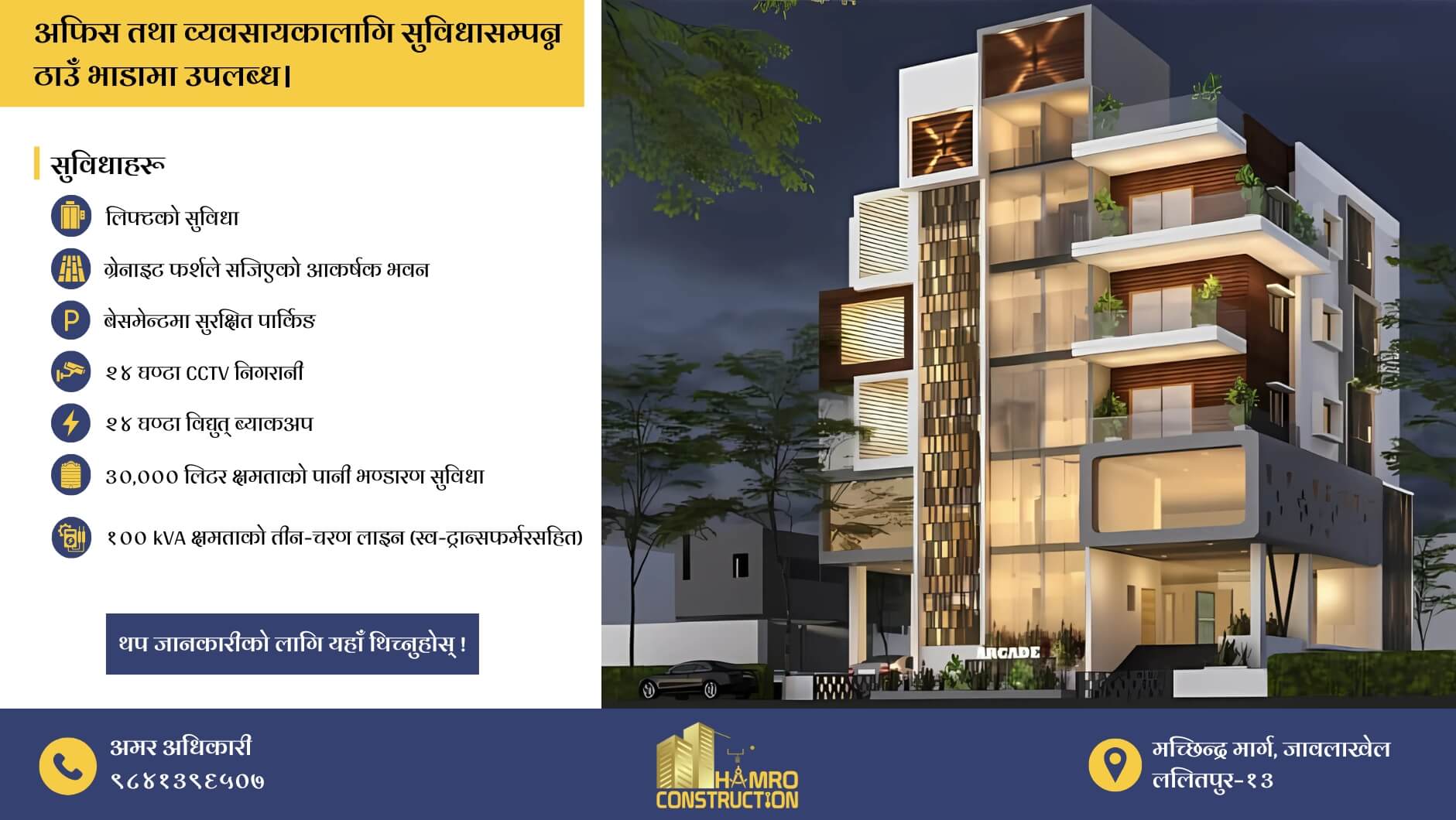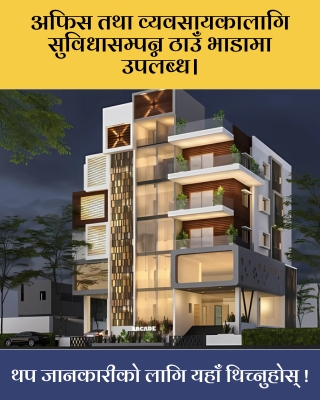Tansen (Palpa), 11 August: Tara Devi Basyal, a 60-year-old resident of Telgha in Tansen Municipality–10, has been extremely busy playing traditional musical instruments. Her engagements have increased with the rise in demand for performances at weddings, religious ceremonies, and local festivals.
Basyal shared that local women began learning to play musical instruments after realizing that it was difficult to sustain a livelihood through household chores alone. About three years ago, due to the unavailability of musicians for traditional rituals like weddings, worship, ancestral rites, and Bratabandha ceremonies, she and other women in the village decided to learn to play the naumati and panchai baja ensembles.
Now the chairperson of the musical group, Basyal said they have started earning income professionally through these performances. Learning to play these instruments has not only helped preserve traditional culture but also provided a source of income for local women during religious and social events.
Basyal stated that each member now earns up to NPR 300,000 annually from playing these instruments. “Previously, when we didn’t know how to play the panchai baja, we had to hire musicians from faraway places, which was expensive. Now, things have become easier for local events,” she said.
Since three years ago, women from the Bahun community have been playing these traditional instruments together. According to the group’s vice-chairperson, Kamala Basyal, they charge between NPR 15,000 and 60,000 per event. The group consists of 12 women: Manju Panthi, Mankumari Neupane, Bhagwati Bhusal, Tara Bhattarai, Sushma Basyal, Sabita Adhikari, Khuma Pangeni, Manju Kandel, Mira Neupane, and Nirala Sharma, along with Tara and Kamala Basyal.
The group has high demand at most events in Palpa, including weddings, festivals, annual celebrations, and fairs. The women wear matching uniforms during performances. They play traditional instruments such as dhankuri, karnal, sanai, and marchunga, and their playing of damaha, dholak, tyamko, and jhyali attracts widespread attention. They have even traveled to Gulmi, Arghakhanchi, Rupandehi, and Syangja to perform.
“People not only cheer us on while we play, but the income is also quite good,” said the group’s vice-chairperson Kamala Basyal.
Similarly, women from Ribdikot Rural Municipality–3 have also started performing at weddings, Bratabandhas, religious events, and public gatherings after receiving training in panchai baja. Aruna Chhahari, the coordinator from the indigenous community group, said they were motivated to learn due to the cultural importance of the instruments and their potential for income generation. Support from the rural municipality and local ward office enabled the training. The group includes 16 women aged between 40 and 55.
“There were no young men in the village to play traditional instruments. We had to call musicians from neighboring villages. When they were unavailable, our traditions were at risk of disappearing. That’s why we women decided to learn and are now earning from it,” she explained.
Ward Chairperson Narayan Bahadur KC confirmed that local women have now started playing musical instruments professionally. According to Chief Administrative Officer of the rural municipality, Mani Prasad Khanal, last year NPR 50,000 was allocated to purchase instruments, and this year another NPR 50,000 has been budgeted to provide musical training.

